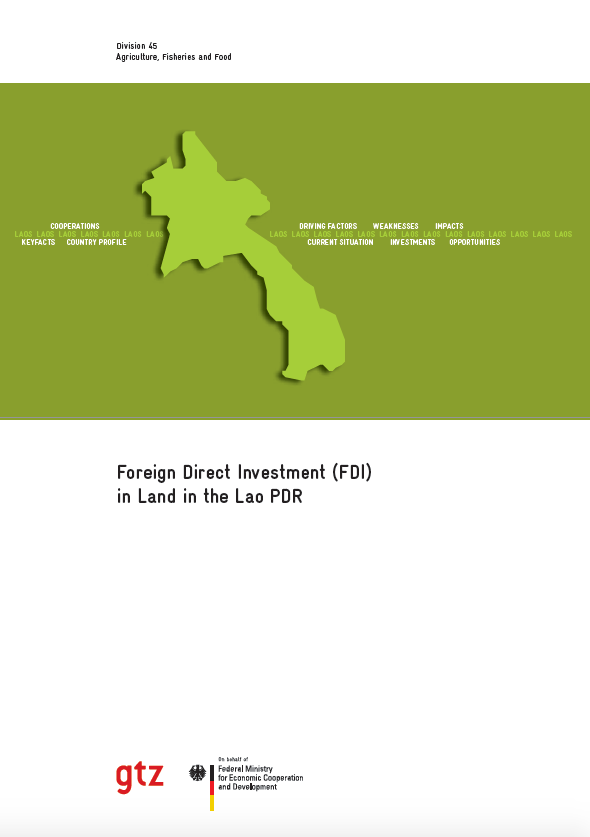Resource information
In the last decade the Lao People’s Democratic Republic (Lao PDR) has transformed itself into a provider of natural resources (timber, agricultural products, minerals, and energy) for its wealthier and more populated neighbours China, Vietnam and Thailand.
Lao PDR has emerged as a bulk supplier of agricultural commodities (cassava, feed and corn) and industrial tree crops (rubber, teak, eucalyptus and acacia). The past few years have seen a proliferation of large-scale land concessions, mostly to Chinese, Thai and Vietnamese investors, to develop export-oriented agriculture and forestry projects (WWF, 2007).
On the heels of a government policy of steady economic growth and market-based economy as well as the growing demand for raw materials and electricity in the region, foreign direct investment (FDI) has rapidly increased in recent years.
Land (including forest land) has become an important resource for industrial use and commercial crop production, and demand for land has been dramatically growing. In the forestry sector, investment (including forest land use investment) in crop and tree plantations, especially large scale investment in the form of state land concessions is rapidly increasing and various conflicts related to land use and concessions have been reported (MAF, 2007).
Control over land became a new magnet for private investors. Food and financial crises combined have turned agricultural land even more into a new strategic asset. Chinese officials visited Vientiane in November 2008 seeking to lease 1 million ha for rice, and Middle East states tried to secure 200,000 ha for their own food production. National governments and corporations seeking agricultural concessions in Lao PDR are not a new development, but the large increase in interest during the past few years has put these investments in the spotlight.


